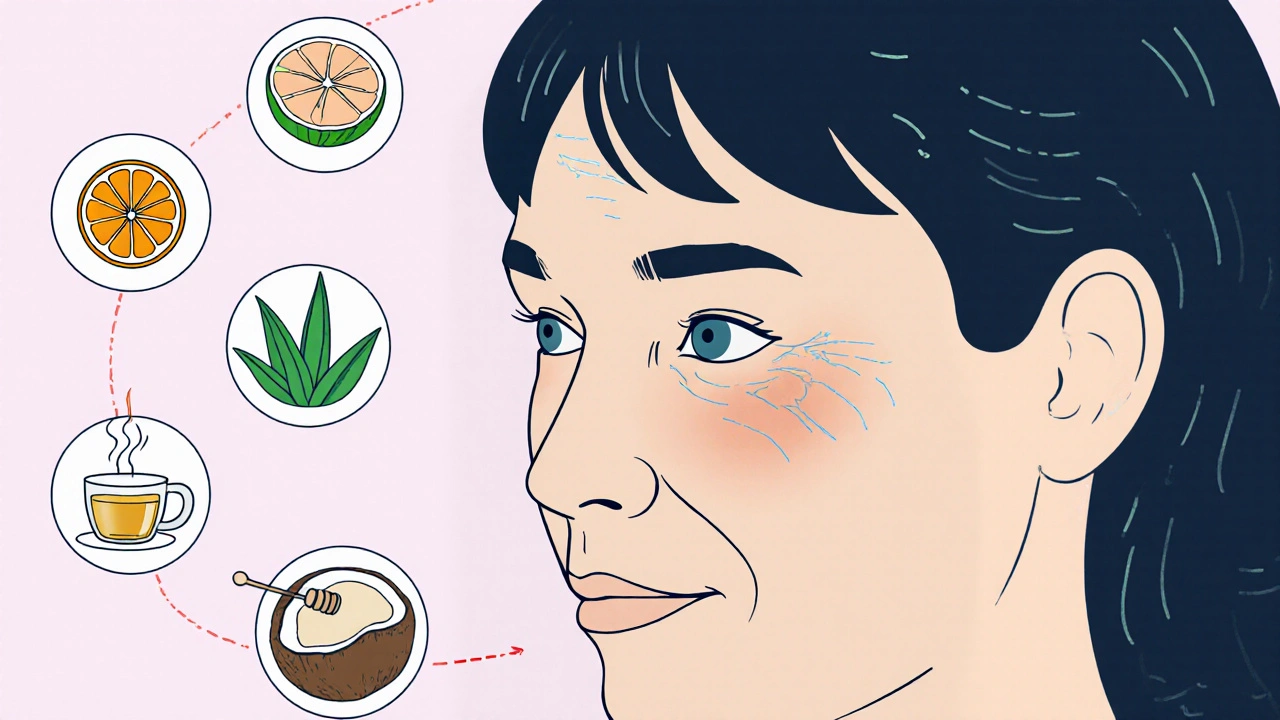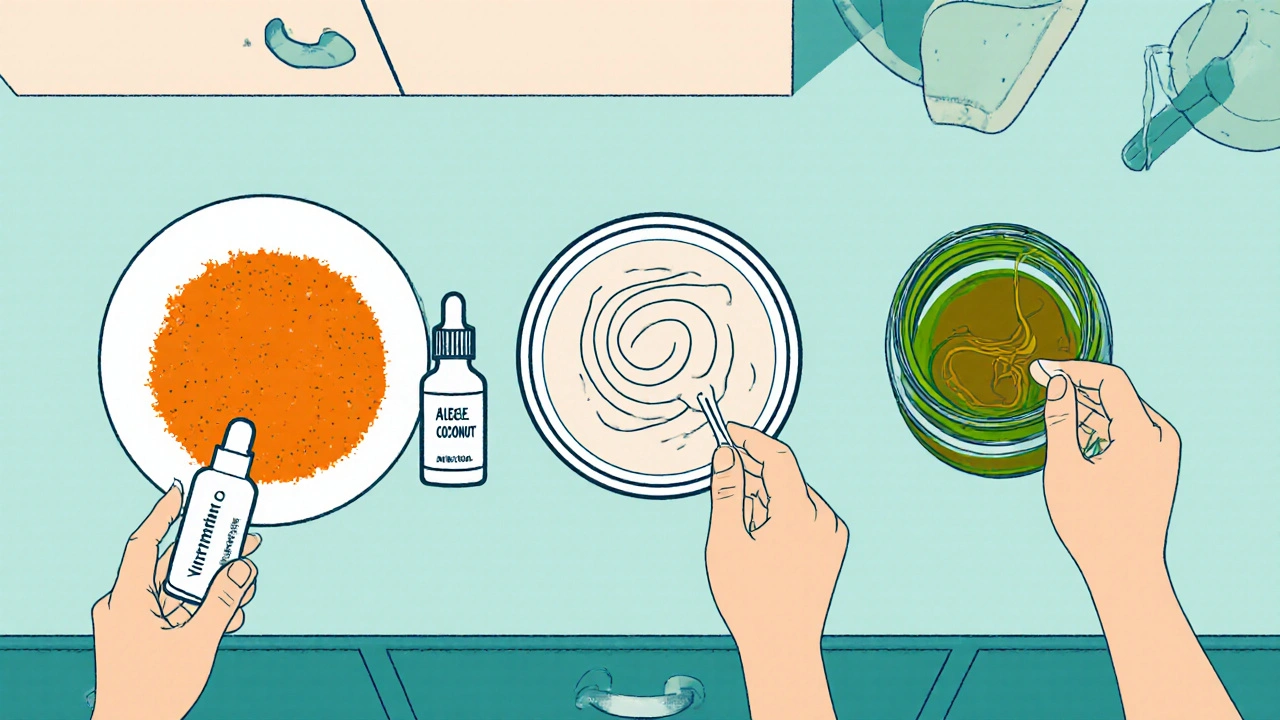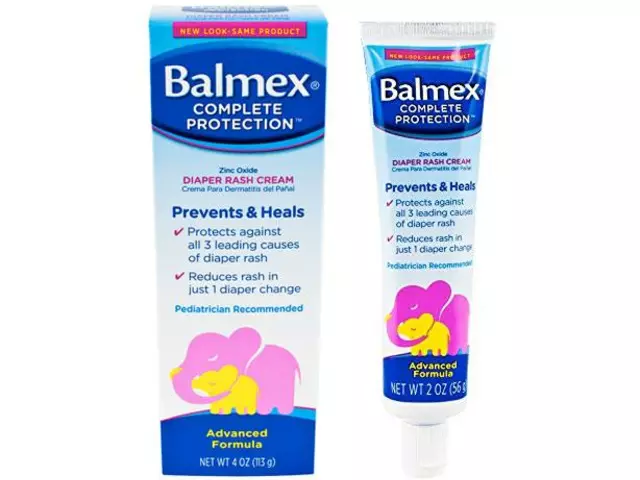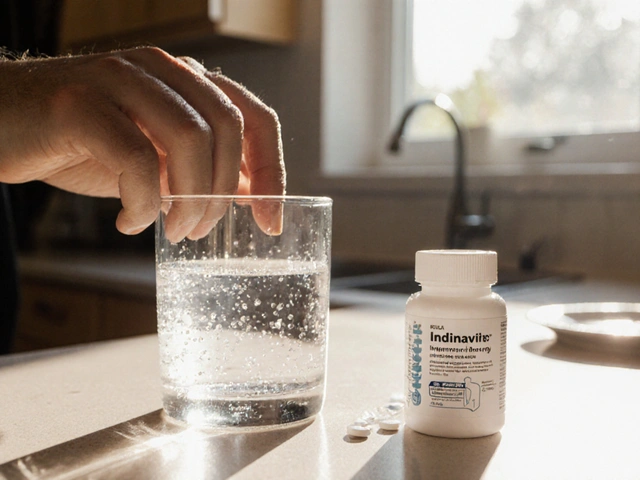Reduce Wrinkles Naturally: Best Home Remedies for Smoother Skin

- Colin Hurd
- 20 October 2025
- 13 Comments
Wrinkle Remedy Selector
Choose Your Priority
Recommended Remedies
When it comes to wrinkles are folds or creases in the skin that become more noticeable as we age, most people want a solution that doesn’t involve prescription creams or invasive procedures. The good news is that dozens of kitchen‑shelf ingredients and simple daily habits can gently soften those lines and keep skin looking fresh. Below you’ll find the science behind each remedy, how to use it, and what to expect.
Why Wrinkles Form: The Basics
Understanding the root causes helps you pick the right natural approach. Two key proteins give skin its firmness: Collagen and Elastin. Collagen provides structural support, while elastin lets skin bounce back after stretching. As we age, UV exposure, smoking, and even sugar‑rich diets break down these proteins, reducing skin elasticity and causing fine lines.
Beyond proteins, skin loses moisture. Hyaluronic acid, a natural humectant, holds up to 1,000 times its weight in water. When its levels drop, skin looks dull and creased. Antioxidants-vitamins C and E, polyphenols in tea, and flavonoids in fruits-protect against free‑radical damage that accelerates collagen breakdown.
Top Natural Ingredients That Support Youthful Skin
Each of the following ingredients packs one or more of the missing pieces-protein support, hydration, or antioxidant power.
- Vitamin C: boosts collagen synthesis and brightens skin tone.
- Aloe vera: high in water and anti‑inflammatory compounds, perfect for hydration.
- Green tea: contains EGCG, a potent antioxidant that shields collagen.
- Coconut oil: locks in moisture and carries fatty acids that repair the skin barrier.
- Honey: natural humectant with antibacterial properties, great for overnight masks.
- Oatmeal: soothing, contains saponins that gently exfoliate without irritation.
How to Use Each Remedy - Step‑by‑Step
- Vitamin C Serum (DIY)
- Mix 1 teaspoon of powdered Vitamin C (L‑ascorbic acid) with 2 teaspoons of distilled water.
- Add ½ teaspoon of Aloe vera gel for stability.
- Store in a dark glass bottle, apply 2‑3 drops to clean skin each morning.
Vitamin C works best in the morning because it helps shield skin from daily UV‑induced free radicals.
- Aloe Vera Night Moisturizer
- Blend 2 tablespoons of fresh Aloe vera gel with 1 teaspoon of Coconut oil (melted).
- Apply a thin layer after cleansing, leave on overnight.
The gel supplies hydration while the oil seals it in, reducing the appearance of fine lines by morning.
- Green Tea Antioxidant Toner
- Brew 2 green tea bags in ½ cup hot water, let cool.
- Add 1 teaspoon of honey and a few drops of lemon juice.
- Pour onto a cotton pad and swipe over face twice daily.
EGCG in green tea neutralises free radicals, while honey adds a gentle humectant boost.
- Honey‑Oatmeal Exfoliating Mask
- Mix 1 tablespoon of ground oatmeal with 1 tablespoon of raw honey.
- Massage onto damp skin in circular motions for 1 minute, rinse with warm water.
Provides mild exfoliation, removing dead skin that can make wrinkles look deeper.

Quick Comparison of the Home Remedies
| Ingredient | Key Benefit | Moisturizing Rating (1‑5) | Antioxidant Rating (1‑5) | Typical Use Frequency |
|---|---|---|---|---|
| Vitamin C | Collagen synthesis | 2 | 5 | Morning, daily |
| Aloe vera | Hydration & soothing | 5 | 3 | Evening, nightly |
| Green tea | Free‑radical protection | 3 | 4 | Twice a day |
| Coconut oil | Barrier repair | 5 | 2 | Evening, nightly |
| Honey | Humectant & antibacterial | 4 | 3 | Weekly mask |
Additional Lifestyle Hacks That Amplify Natural Results
Even the best home remedy can be limited if your daily habits undermine skin health. Pair the remedies with these easy changes:
- Sleep on your back. Pillow creases can imprint lines over time.
- Stay hydrated. Aim for at least 2 L of water a day to keep skin plump.
- Use a broad‑spectrum SPF 30+ every morning, even if you work indoors. UV rays are the #1 external wrinkle driver.
- Limit sugar intake. High glucose accelerates collagen cross‑linking, making skin stiff.
- Practice gentle facial massage. Using fingertips or a jade roller promotes circulation and lymphatic drainage, which can improve product absorption.
Common Mistakes and How to Avoid Them
Natural doesn’t always mean safe. Here are pitfalls people often run into:
- Over‑exfoliating. Using the oatmeal mask more than 2‑3 times a week can strip natural oils, leaving skin fragile.
- Mixing acidic Vitamin C with heavy oils. This can cause the vitamin to degrade faster. Keep the serum separate from oil‑based moisturizers and apply the oil after the serum has fully absorbed (about 5 minutes).
- Expecting overnight miracles. Collagen synthesis is a slow process; visible smoothing typically appears after 4‑6 weeks of consistent use.
- Skipping patch tests. Even natural ingredients can trigger reactions. Apply a small amount on the inner forearm for 24 hours before using on the face.
Putting It All Together: A 30‑Day Routine
Below is a simple schedule that blends the top remedies with lifestyle habits. Adjust timings to fit your routine, but aim for consistency.
| Morning | Evening |
|---|---|
| Cleanse → Vitamin C serum → SPF 30+ | Cleanse → Aloe‑Coconut moisturizer → Gentle facial massage (2 min) |
| Green tea toner (after cleansing) - 3×/week | Honey‑Oatmeal mask - 2×/week (replace moisturizer on those nights) |
Stick with the plan for at least a month; you’ll likely notice smoother skin texture and a modest reduction in fine lines.
Key Takeaways
- Target the three pillars of skin health: collagen support, hydration, and antioxidant protection.
- Vitamin C, aloe vera, green tea, coconut oil, and honey are the most evidence‑backed home ingredients.
- Consistency beats intensity - daily low‑dose applications work better than occasional heavy treatments.
- Combine topical remedies with sun protection, hydration, and sleep hygiene for maximum impact.
Can I use these remedies if I have sensitive skin?
Yes, most of the ingredients are gentle, but always do a patch test first. Aloe vera and oatmeal are especially soothing for reactive skin.
How long before I see results?
Visible smoothing typically appears after 4‑6 weeks of daily use. Patience is key because collagen remodels slowly.
Do I need a separate moisturizer if I use the coconut‑oil mix?
The coconut‑oil blend already provides occlusion, so a light moisturizer isn’t necessary unless your skin feels tight. You can layer a gel‑based moisturizer on top if you prefer a lighter feel.
Is it safe to combine the Vitamin C serum with retinol at night?
Both are potent actives. If you’re new to them, use Vitamin C in the morning and retinol three nights a week at night to avoid irritation.
Can these home remedies replace clinical treatments?
For mild to moderate lines, natural remedies can be effective, especially when paired with good lifestyle habits. Severe deep wrinkles may still benefit from professional options like laser therapy or fillers.




Comments
Sebastian Green
Totally get it-wrinkles can feel like a constant reminder.
October 20, 2025 AT 15:12
Israel Emory
Listen!!! You can't just slather on random kitchen junk!!! It’s a myth that these home remedies work better than proven treatments!!!
October 21, 2025 AT 14:35
jessie cole
Dear reader, I applaud the thoroughness of this guide. It gently walks us through each remedy, step by step, with clear instructions. The tone is encouraging, making even a novice feel confident. I especially appreciate the emphasis on consistency over quick fixes. May your skin flourish with such disciplined care.
October 22, 2025 AT 13:59
Kirsten Youtsey
One must question the hidden agendas behind the glorification of “kitchen‑shelf” miracles. The elite pharmaceutical conglomerates profit from our insecurities, while promoting these so‑called natural hacks as a diversion. Yet the data is thin, and the hype relentless. It feels like an orchestrated campaign to keep us buying expensive creams. In any case, a healthy skepticism never hurts.
October 23, 2025 AT 13:22
Matthew Hall
OMG, this whole natural‑remedy craze is like a drama series on repeat! One moment you’re soothing your skin with aloe, the next you’re terrified that your morning tea is secretly a mind‑control potion. Still, if the routine helps you sleep better, who am I to judge?
October 24, 2025 AT 12:45
Rajesh Myadam
I really feel for anyone trying to balance these tips with a busy schedule. The suggestions here are practical and kind‑hearted. Just remember to patch‑test before diving in deep, and listen to how your skin reacts. You’ve got this.
October 25, 2025 AT 12:09
Andrew Hernandez
Great summary of natural options. It’s nice to see a balanced view that doesn’t ignore the need for sunscreen. Keep sharing such inclusive content.
October 26, 2025 AT 10:32
Alex Pegg
While the author presents many “natural” tricks, I remain unconvinced that they surpass clinically proven options. It’s a convenient narrative, but not a substitute for evidence‑based care.
October 27, 2025 AT 09:55
Wesley Humble
Statistically, the efficacy of topical antioxidants is modest at best 📊. The majority of peer‑reviewed studies indicate that while vitamin C can aid collagen synthesis, the concentration and pH are critical. Most DIY mixes fail to meet these thresholds, rendering them largely ineffective. Hence, caution is advised when replacing clinically validated serums with homemade alternatives. 🧪
October 28, 2025 AT 09:19
barnabas jacob
From an ethical standpoint, indulging in these remedies without proper scrutiny is simply untenable. The discourse is riddled with hype‑induced jargon-"bio‑active phenolics," "hydro‑colloid synergy," and the like-yet the underlying biochemistry remains vague. One must defiantly reject the plastered‑on optimism and demand rigorous validation. Otherwise, we’re just perpetuatin an illusion.
October 29, 2025 AT 08:42
Vijaypal Yadav
Vitamin C boosts collagen; aloe hydrates; green tea provides antioxidants. Use them consistently for best results.
October 30, 2025 AT 08:05
Ron Lanham
It is a solemn duty, indeed, to interrogate the moral underpinnings of the modern wellness industry, which so fervently markets the allure of “natural” cures while cloaking its profit motives in the garb of altruism. One must first acknowledge that the commodification of ancient botanical wisdom has been weaponized to generate vast revenues, often at the expense of vulnerable consumers seeking solace from the inexorable march of time. The narrative that kitchen‑shelf concoctions alone can reverse the complex, age‑related degradation of collagen and elastin is, in many respects, a seductive myth propagated by profit‑driven marketing engines rather than by rigorous scientific inquiry. While the antioxidative potential of green tea catechins and the humectant properties of honey are incontrovertibly documented, the extrapolation of these isolated benefits to a comprehensive anti‑aging regimen is a leap that sidesteps the nuanced interplay of genetics, environmental exposures, and systemic health. Moreover, the casual endorsement of practices such as “sleep on your back” or “drink two liters of water daily” may, though well‑intentioned, obscure the reality that these behaviors are merely adjuncts, not panaceas. In an era where information flows unfiltered, the responsibility lies upon each individual to dissect the provenance of such claims, to demand peer‑reviewed evidence, and to resist the siren call of quick fixes that promise youthful skin without acknowledging the inevitable biological processes that govern human aging. Ultimately, the ethical imperative is to cultivate a balanced perspective that respects both the potential merits of natural remedies and the indispensable role of scientifically validated dermatological interventions. Only through such a measured approach can we hope to navigate the thin line between hopeful curiosity and naïve credulity.
October 31, 2025 AT 07:29
Deja Scott
I appreciate the thoroughness of your analysis, Ron. While I agree that we should stay critical, many people find genuine benefit in these simple practices when they’re used responsibly.
November 1, 2025 AT 06:52